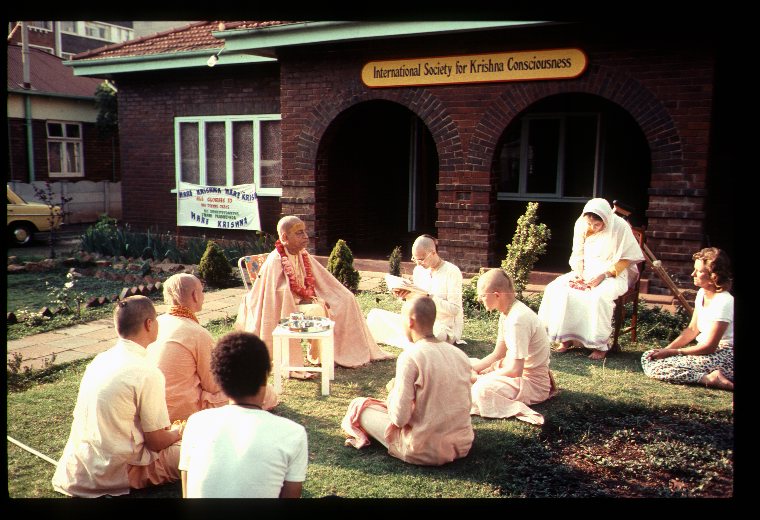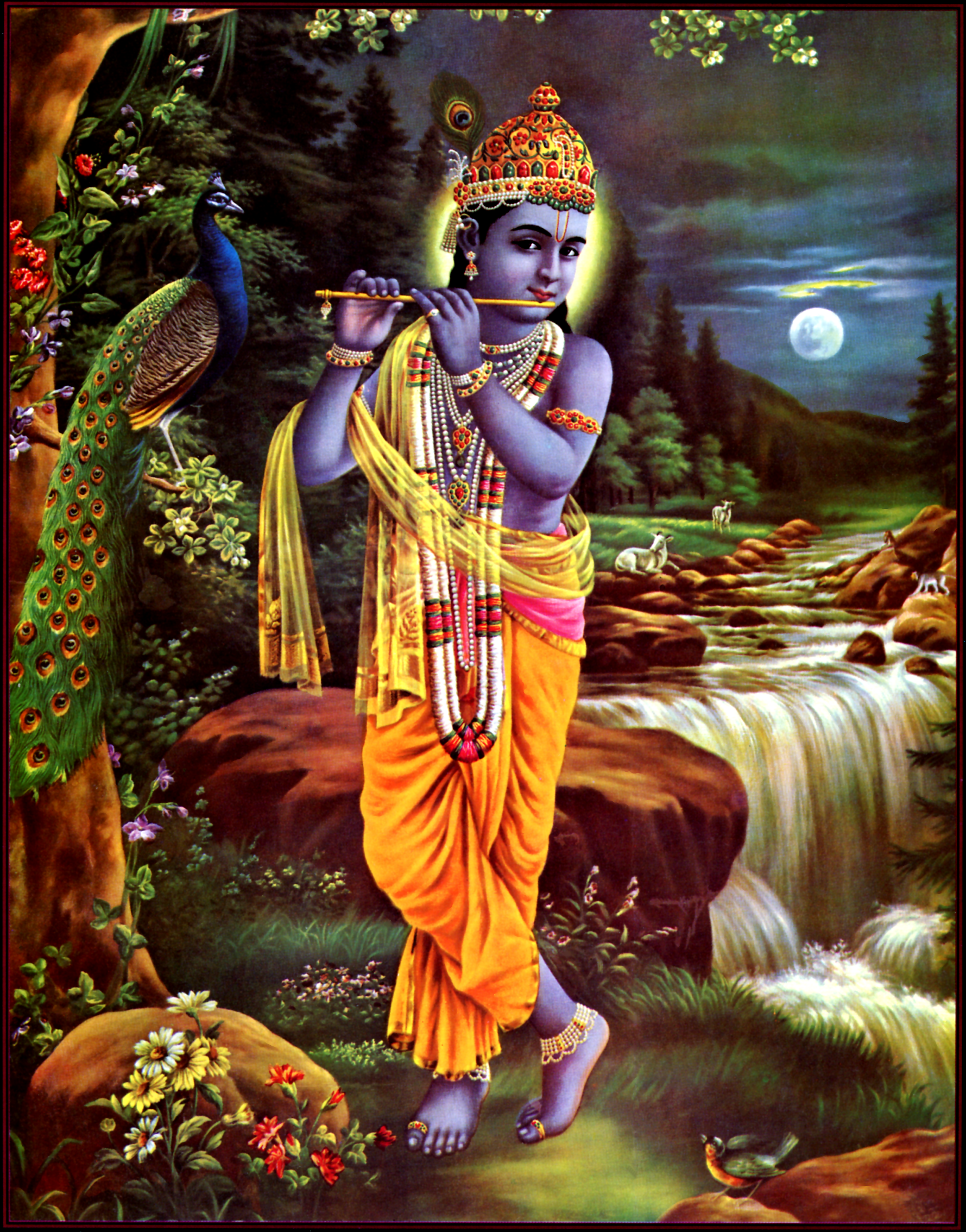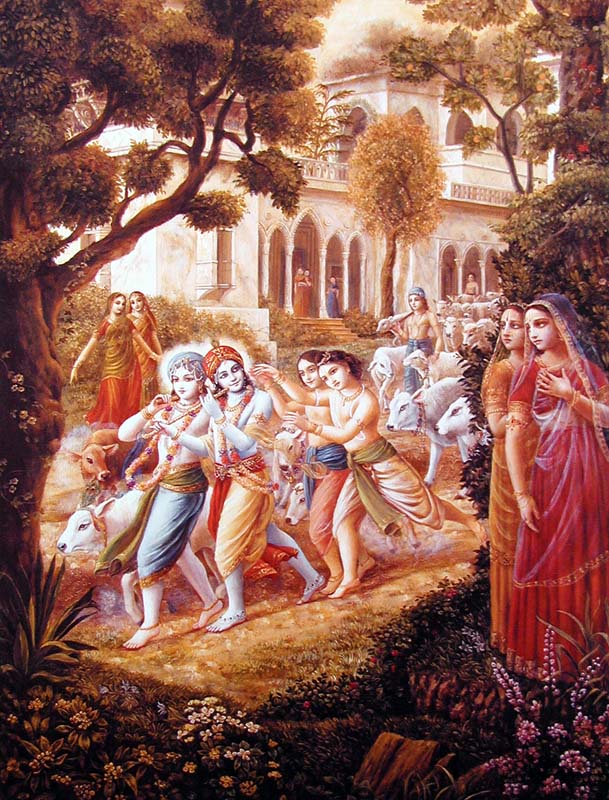By His Divine Grace A. C. Bhaktivedanta Swami Prabhupada
Karma means fruitive activities. I am doing something now, so I am creating another body. If I am acting like a dog, then I am creating another body, dog’s body, hog’s body, tree’s body, or even demigod’s body. If you act piously, then you create demigod’s body. Janmaiśvarya-śruta-śrī (SB 1.8.26). But that is also knot; that is not freedom. Just like you are American boys and girls. You are supposed to be born of rich nation, rich father, than us Indians. We are born of poor father. So… But that does not mean that you are free from this knot. That is there.
People are trying that “We shall be happy by becoming materially advanced.” That is called durāśayā. That is hope against hope. Na te viduḥ svārtha-gatiṁ hi viṣṇum (SB 7.5.31). They do not know that destination of life is to attain Kṛṣṇa consciousness. No. They do not know. They think, “By increasing motorcars, we shall be happy.” This is called māyā. That will not help. This motorcar civilization will be finished within another hundred years. It has begun, say, for the last hundred years, and after a hundred years, when… The scientists say the petroleum will be finished within fifty years or like that, so, say hundred years, this motorcar will be finished.
So anything we manufacture, the so-called empire, so-called material civilization; it is finished, it will be finished. That is another knot only, that we become captivated. So “What is this Kṛṣṇa consciousness movement? We must have three dozen motorcar and three dozen wine bottles and this…” This is their civilization. So this is karma-bandhana. Narottama dāsa Ṭhākura sings therefore,
- sat-saṅga chāḍi’ kainu asate vilāsa
- te-kāraṇe lāgila ye karma-bandha-phāṅsa
- (Prārthanā)
This knot, karma-bandha-phāṅsa. Sat-saṅga: This is sat-saṅga – You are hearing Śrīmad-Bhāgavatam in the front of Kṛṣṇa and practicing how to become pure. This is called sat-saṅga. And asat-saṅga means this intoxication, illicit sex and drinking, so many things, asat-saṅga. The advertisement, “Come on, here is cigarette, ‘Kool,’ make your brain cool.” (laughter) “By smoking?” (laughter) Rascal. They think that “I am smoking…” How it can be cool? But they purchase Kool. This is called māyā. (chuckles) He’s smoking fire, and he’s becoming cool! (laughter) And the advertisement is going on, and the rascals are captivated by these advertisement, and they smoke, “become cool.” Yes.

So this is called knot. In so many ways, they are tied up. So actually, if anyone is kovida… Kovida, here it is used. What is the meaning of kovida?
Devotee: Intelligent.
Prabhupāda: “Intelligent.” Kovida means intelligent. So intelligent persons should see to it. Just like it is a little…, little intelligent. Just like we can see when the advertisement, we can immediately understand, “What is this nonsense advertisement? He’s smoking, and it is cool?” So contradiction. You’ll find contradiction everywhere. Because they are not intelligent, they are thinking intelligent. But anyone who is intelligent, they can understand what is the trick.
So when actually one becomes intelligent, then the enquiry is, “Why? Why I am put into this miserable condition of life? I do not want this, and it is forced upon me. I do not want to die; death is there. I do not want disease; the disease is there. I do not want this; it is forced upon me. I don’t want war, but they, the draft board drags me to the war. Why these are?” This “why” question must be there. That is intelligence. That is Kenopaniṣad, Kena.
There is Upaniṣad, Kena. And Sanātana Gosvāmī, when he approached Caitanya Mahāprabhu, he also inquired this “Why?” Ke āmi, kene āmāya jāre tāpa-traya (CC Madhya 20.102). “Who am I? Why I am put into this miserable condition of life?” That is intelligence. He was minister. He could understand that “I am minister. People adore me as very learned man.”
He said that to Caitanya Mahāprabhu. Grāmya-vyavahāre paṇḍita, satya kari māni: “My dear Lord, these common people, my neighbors, because I am minister and I’m supposed to be educated, I know little Sanskrit, I know little Arabian language, they call me paṇḍita, learned man, very scholar and versed. I, to tell You frankly, I do not know what I am. So what is the value of my education? I do not know.” Ke āmi, kene āmāya jāre tāpa-traya. “What I am.” Continue reading →









